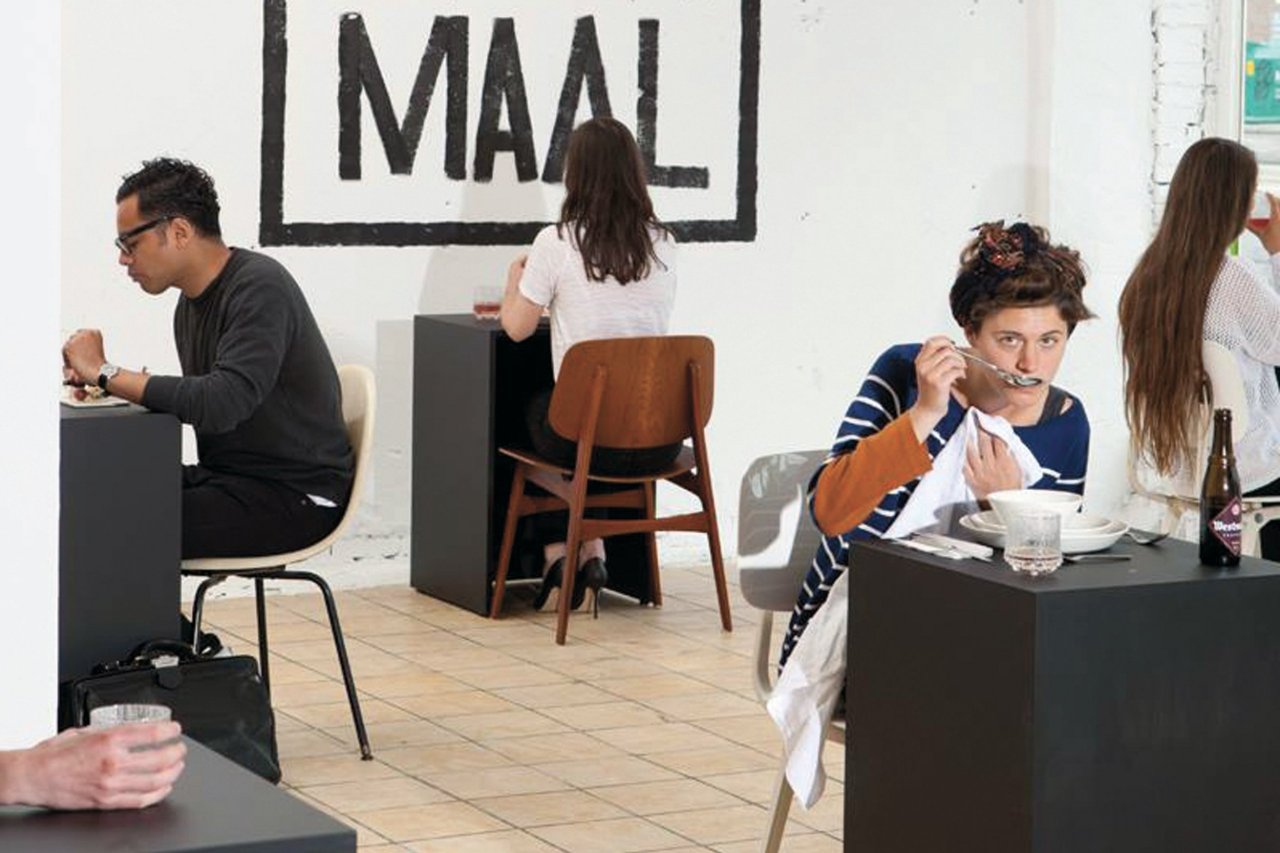DUTCH DESIGNER Maria van Goor recently surprised diners in Amsterdam by opening a temporary restaurant where every table was set up for one person alone. It wasn't just for people buried in their Kindles with a late-night burger and a bottle of Heineken for company. It served four-course meals. And right away it was booked solid. Clearly she tapped into a trend, and she's now looking to expand. While solitary eating is generally regarded as a sad ritual of refueling—a symptom of anomie in a busy, crowded, and uncaring world—fine dining can be another matter altogether. There's a growing body of literature telling us how best to enjoy it: order smaller portions and try more variety; don't immerse yourself in emails and stop and smell the rosé. And as self-indulgent as dining out alone may sound, it is actually better for you, caloriewise, than eating with friends or chowing down at your desk. A study at Glasgow Caledonian University concluded that when you eat alone, or even with strangers, you're likely to exercise more control than when you're distracted by your pals, your work, or that movie you downloaded to go with your takeout Chinese.
Reservation for One: The Advantage of Eating Solo





























